The 2025 Toyota Camry Takes a Big Leap
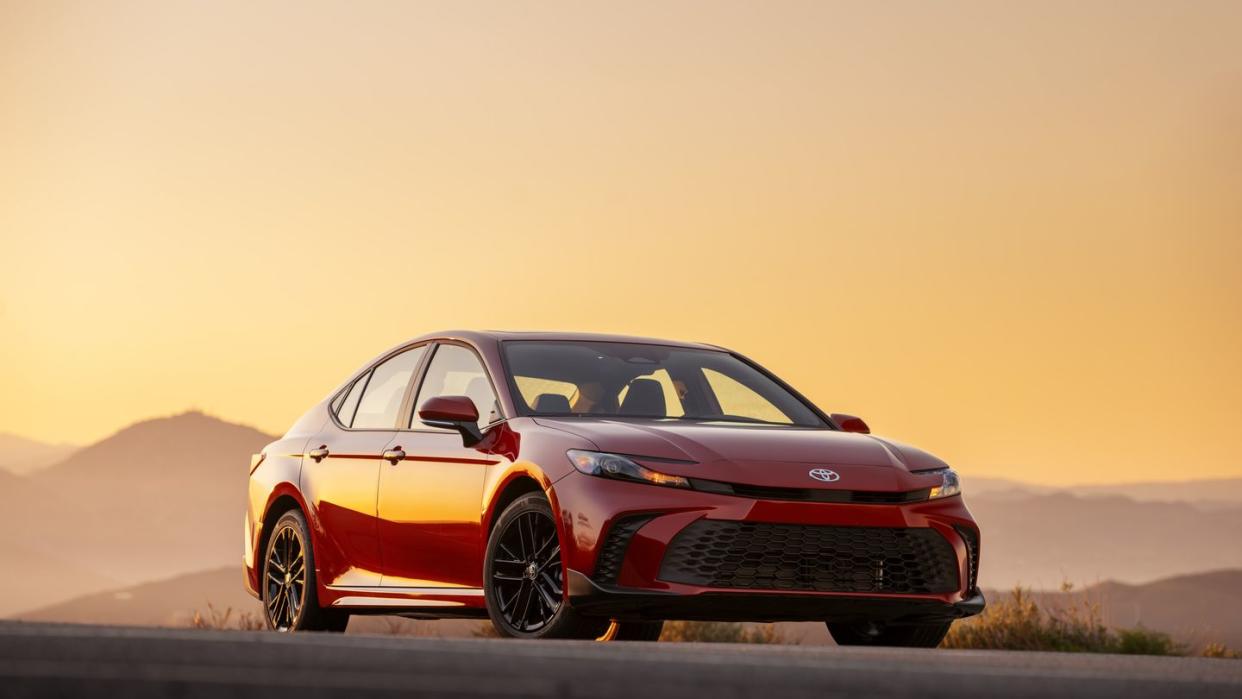
It’s not all new. It’s not even all that new. But the 2025 Toyota Camry sedan is new enough. And in at least one form, it might be brilliant. Maybe. Could be.
Taking the big leap, Toyota has made all the Camrys to be sold in the United States gas-electric hybrids with a 2.5-liter four-cylinder internal combustion engine and a battery pack to feed electric motor(s). That means it has axed the V-6 which was an engaging option on Camrys since the 1988 model year in America. Every 37 years it’s nice to mix things up. All this follows on the Sienna minivan that similarly went all-hybrid back in the 2021 model year.
Except for the drivetrain conniptions, this Camry is very familiar. Most of the major steel stampings – firewall, most of the floor pan, door structures, and roof – carry over from the 2024 Camry. And it doesn’t take much imagination to see that. Still, the redesign of the nose, done by CALTY in California, looks far more modern and works well on Toyota’s NASCAR Cup cars. Nothing startling, but nothing off-putting either.
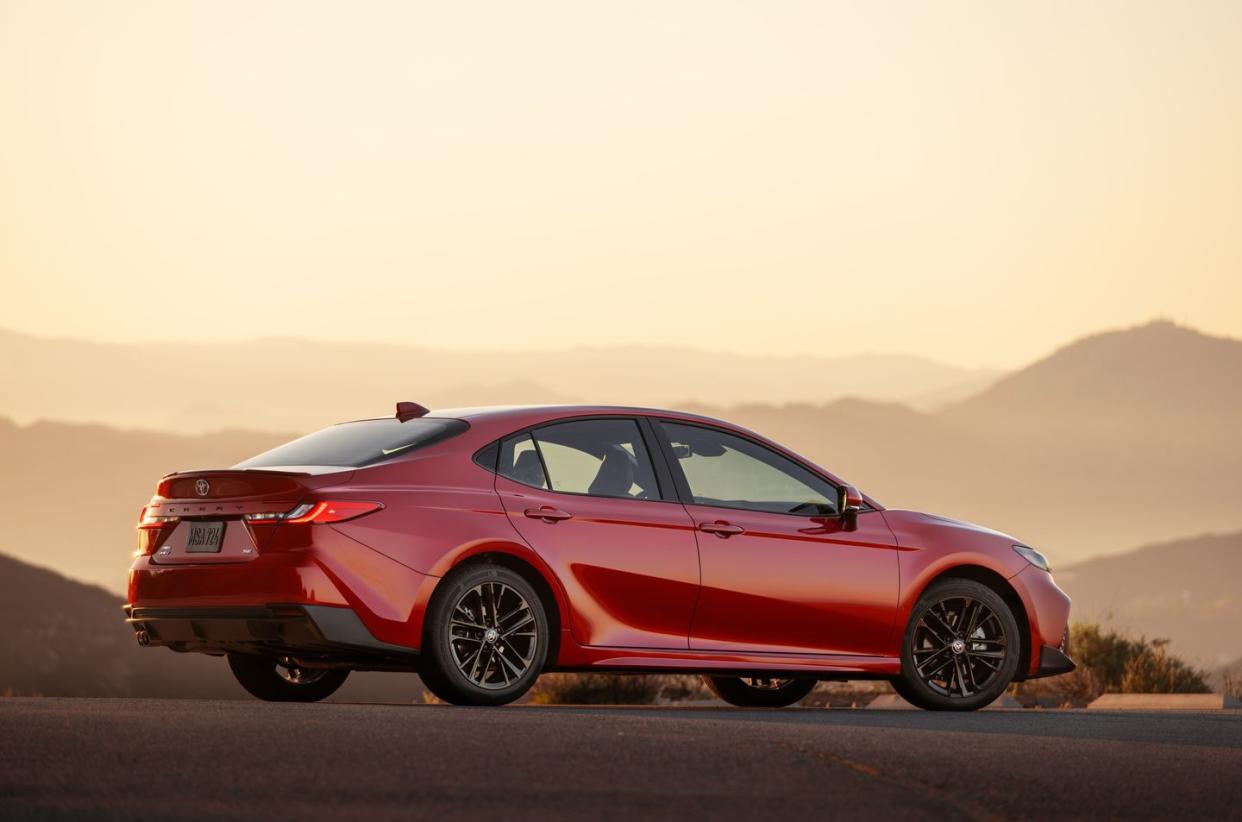
For anyone who fetishizes Toyota production codes, this 2025 Camry is the XV80. It’s based on the TNGA-K component set that underpins most of Toyota’s transverse engine, unibody products including the Sienna, RAV4, Venza, Highlander, Crown, and a whole bunch of Lexuses. The suspension is pretty much carryover with the nose held aloft on a pair of MacPherson struts, and the tail on a whole bunch of links with coil springs. The wheelbase remains the same 111.2 inches as last year, though the 193.5-inch overall length is up between 0.8- and 1.2 inches depending on model trim.
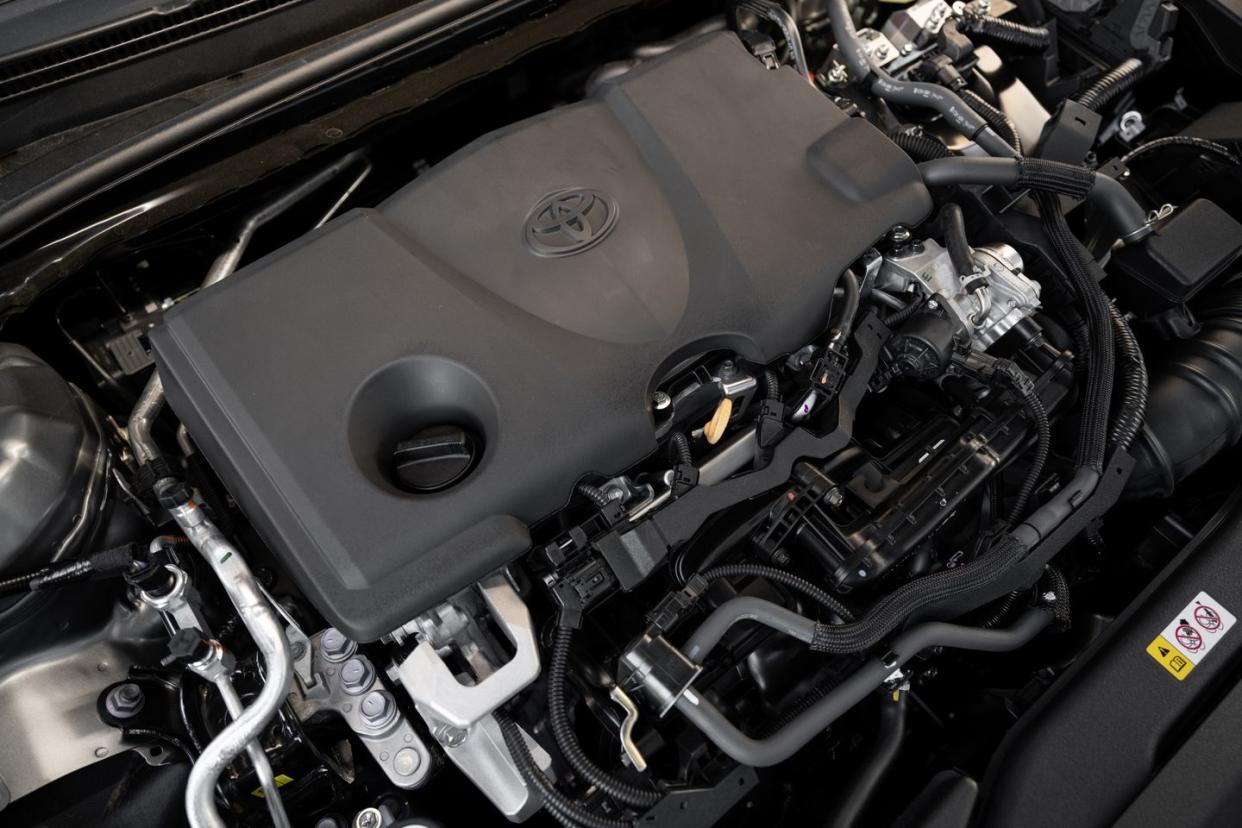
Though the 2.5-liter, DOHC, 16-valve, all-aluminum four appears to be the same as that used in 2024 models, it has been re-tuned for all-hybrid duty. It’s still an Atkinson-cycle engine as in previous Camry hybrids, but it has gained an additional eight horsepower to knock it up to 184 at 6000 rpm. The peak 163 pound-feet of torque comes at 5200 rpm. Nice evolution, but nothing thrilling.
The changes to the hybrid system are, however, more intriguing. The electric motor alongside the four has seen a 16-horsey bump from 118 to 134. Together the electric motor and internal combustion engine feed a planetary gearset that acts as a continuously variable transmission. CVTs don’t get much respect, but this one is well-evolved and more engaging. Not too engaging, but not irritating.
When every element of the front-drive version's drivetrain is working together the result is 225-hp in front-drive models and 232 hp with all-wheel drive. More about the all-wheeler later.
The power output is clearly ahead of the Honda Accord Hybrid’s 204-hp output. But even more impressive is what Toyota is projecting for its EPA mileage ratings. How about 53 mpg in the city and 51 mpg on the highway for the base LE front driver? And a barely compromised 51 mpg in the city and 50 mpg on the highway for an LE with all-wheel drive? That’s spectacular.
For zap, there’s a 68-cell lithium-ion battery pack rated at four-ampere hours. Expectations are that Toyota will add a plug-in hybrid model in the next couple of years and that will sport a bigger battery.
Toyota also has the thirstiest new Camry to be the sportiest XSE model at 44 mpg in both the city and highway cycles. This goes some way to validating Toyota’s bet on hybrid technology rather than battery all-electrics.
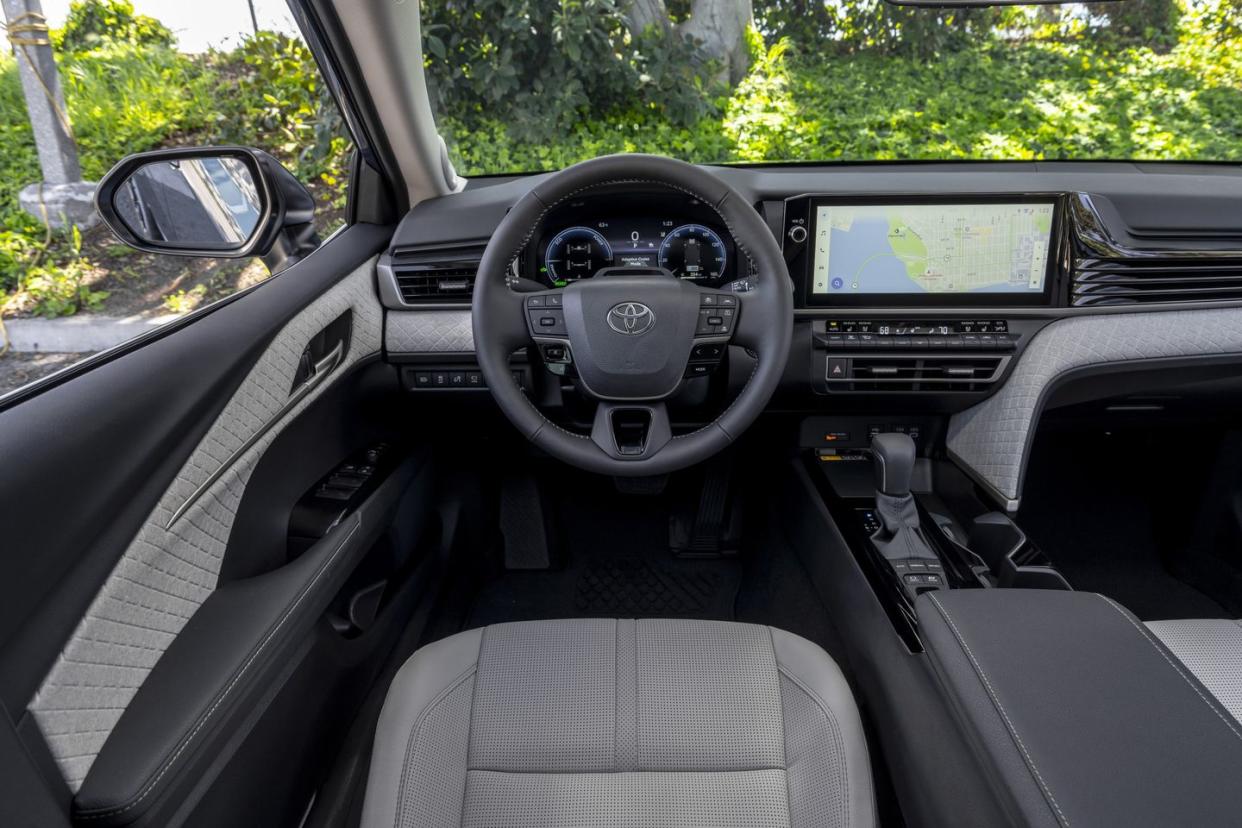
At the bottom of the Camry range is the LE with an austere interior covered in plastics and hearty-looking fabric upholstery. Paint it yellow, throw a light on the roof and it’s a New York City cab. From there the range rises through mainstream XLE, mainstream-but-sportier SE, and line-topping XSE which has some sportier-but-mainstream vibes. The Camry’s mission is to be comforting and familiar, not startling or radical.
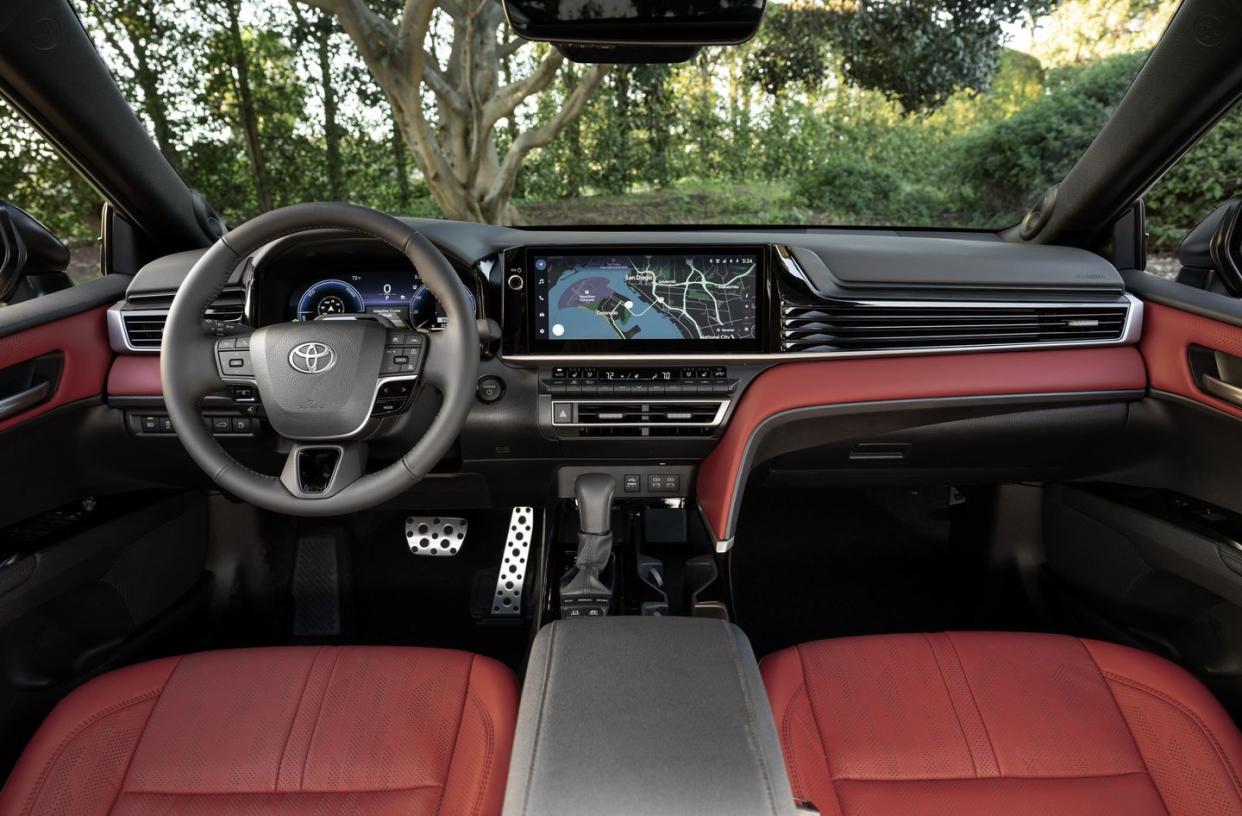
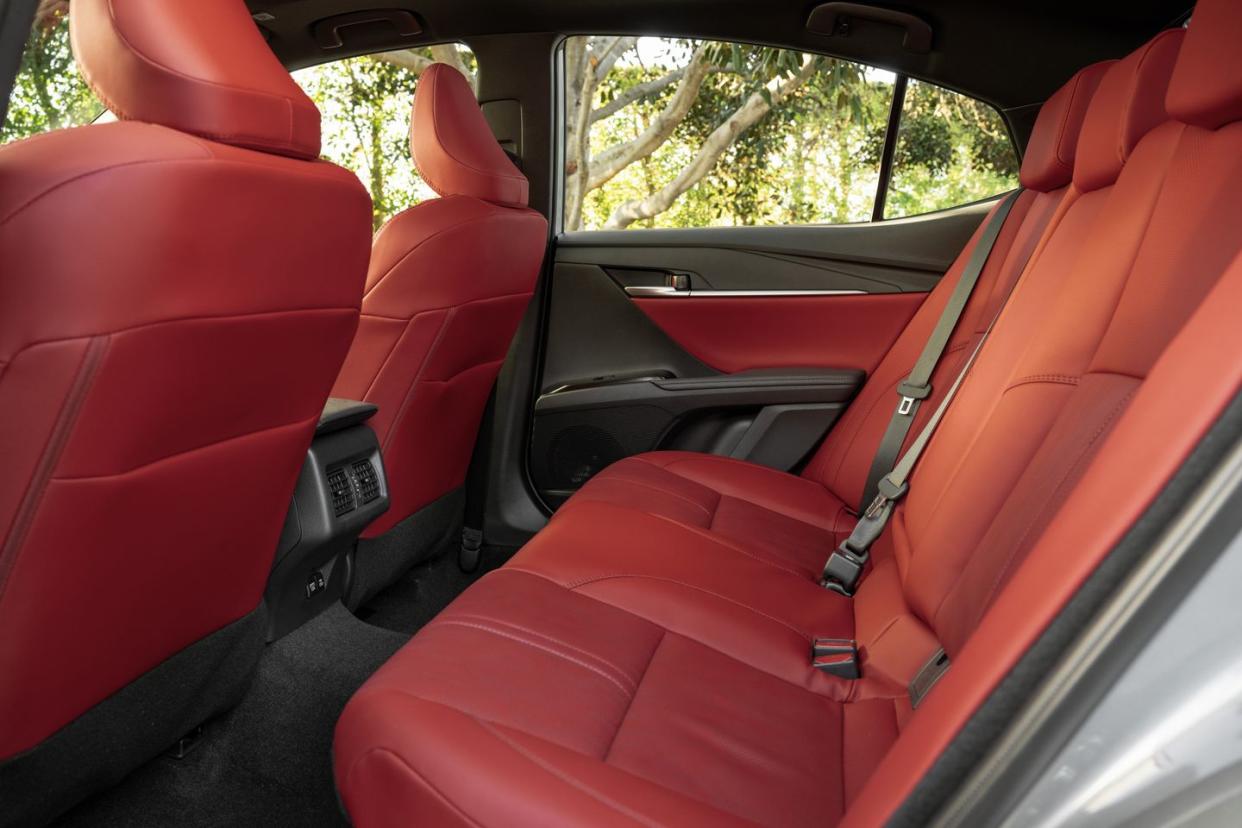
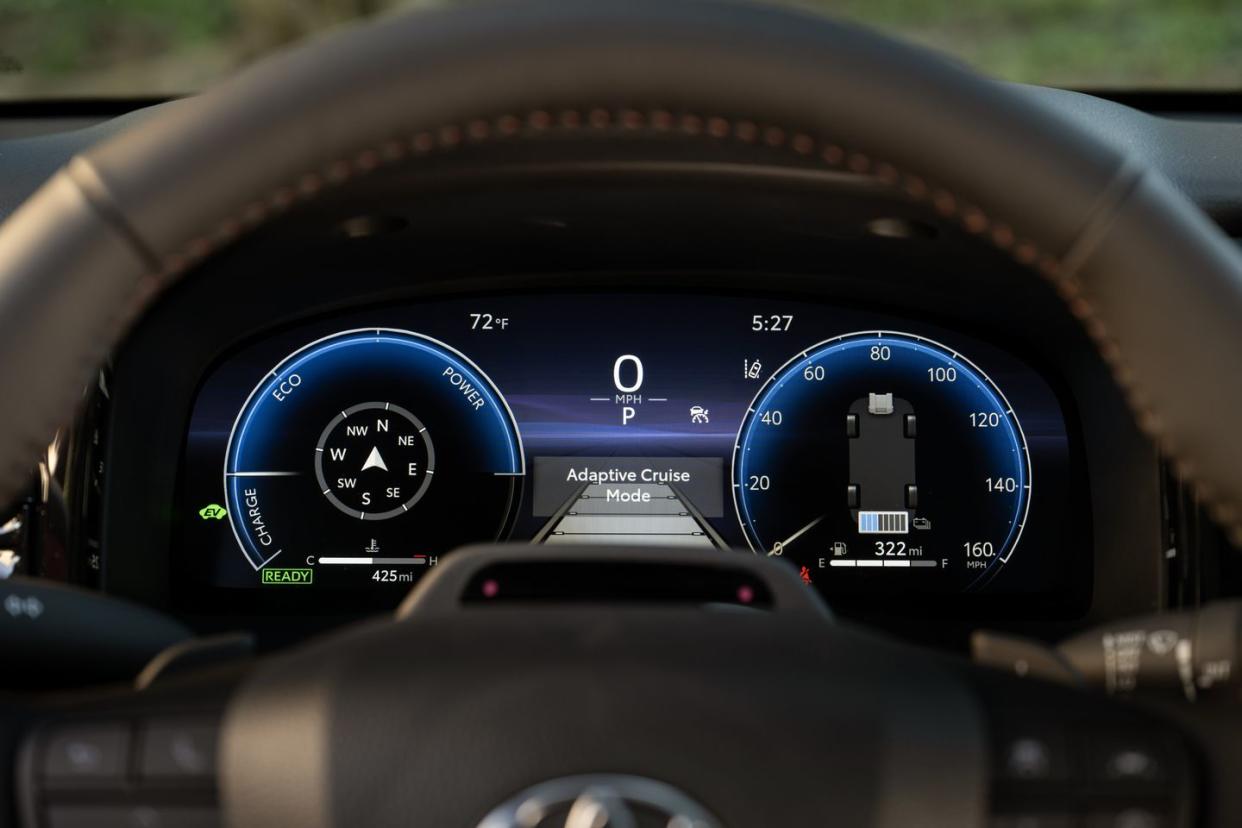
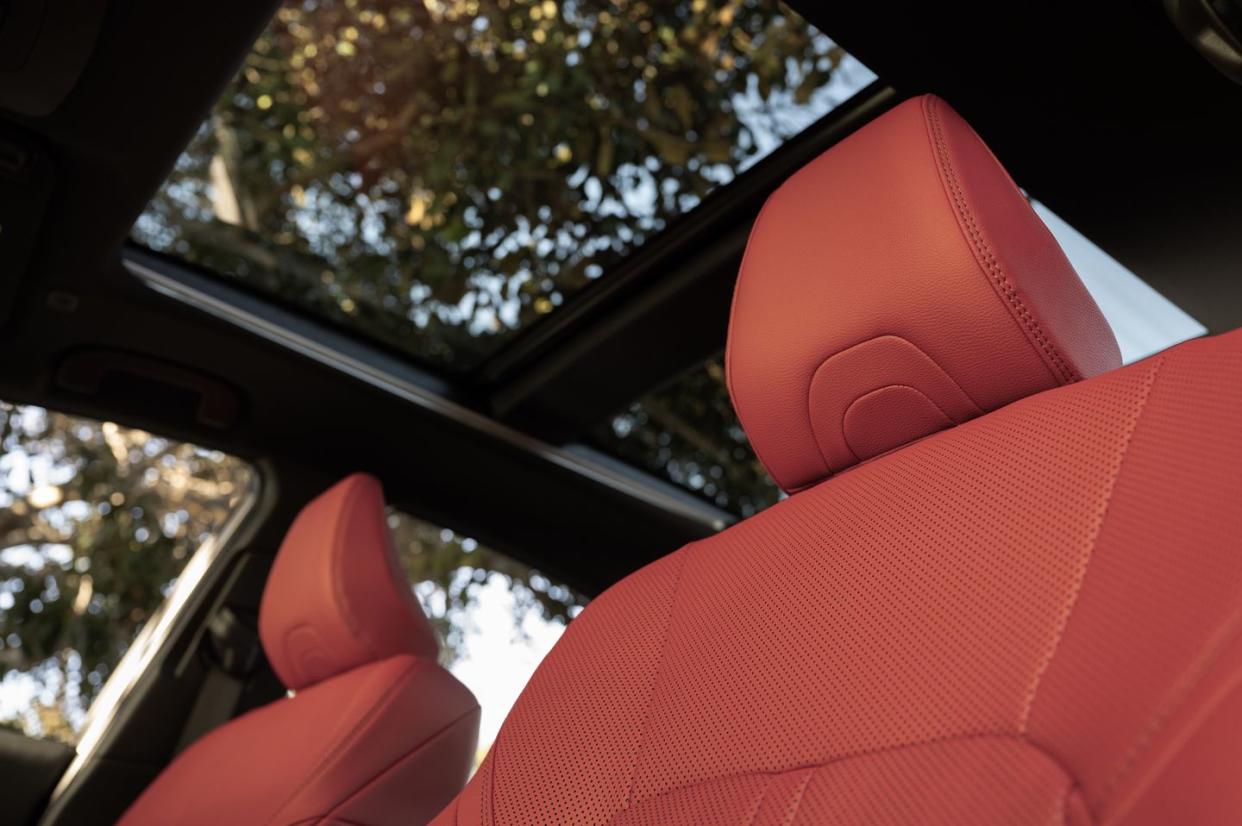
No matter what the trim level, the new Camry interior is squarer cut than before. The boxy shapes stretch across the dash, with the centerpiece being, of course, a touchscreen. Lower trim grades get a seven-inch gauge screen in front of the driver, while the upper models have a 12.3-inch. The center screen also varies with trim with the pricier models using a second 12.3 incher. A heads-up display is part of an available tech package.
This was a very short exposure to the new Camry. All the impressions here are preliminary. Toyota hasn’t screwed the pooch here; it’s another easygoing Camry that is now hyper-efficient. But there is one very big piece of news.
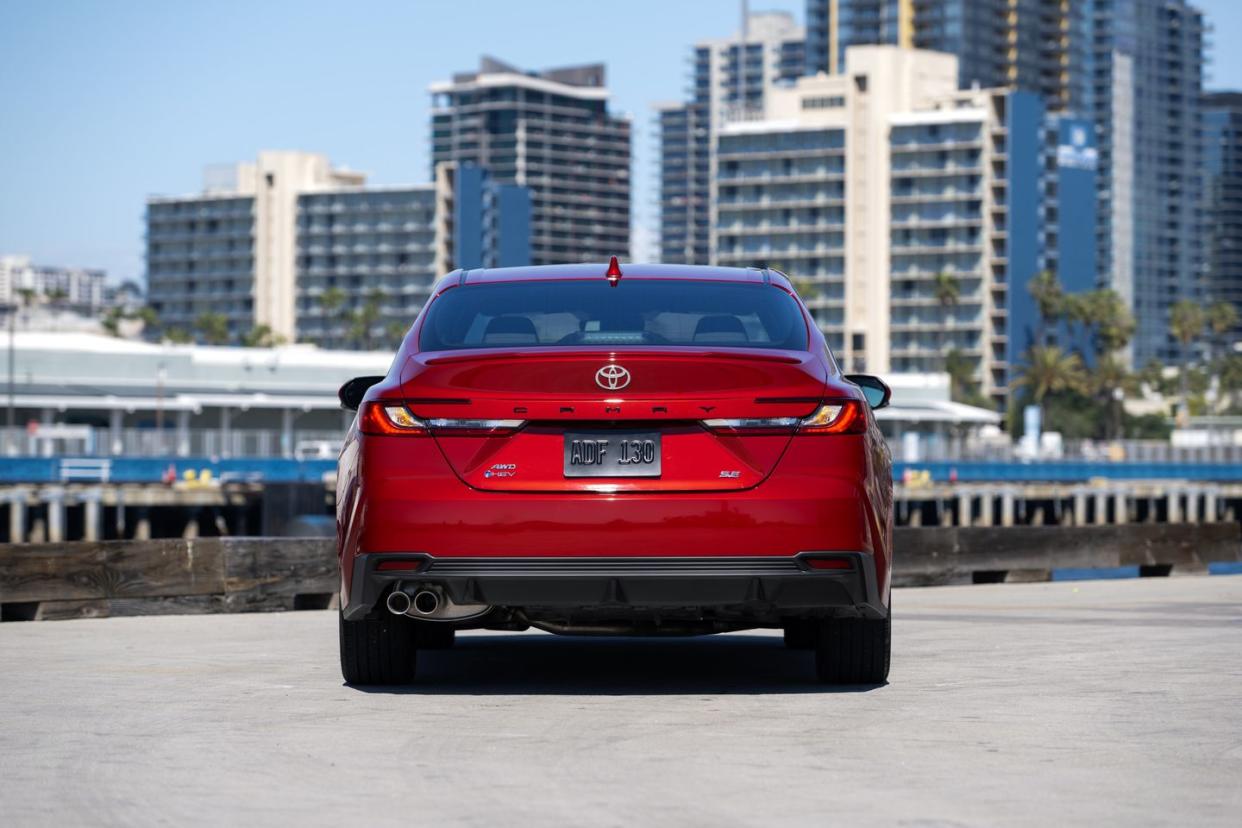
And that news is that the all-wheel drive model may turn out to be awesome. It uses the same kind of setup that Toyota uses on the new Prius. There’s no driveshaft going back to the tail, instead, there’s an electric motor delivering power to the rear wheels on demand. Drivers should demand that power all the time.
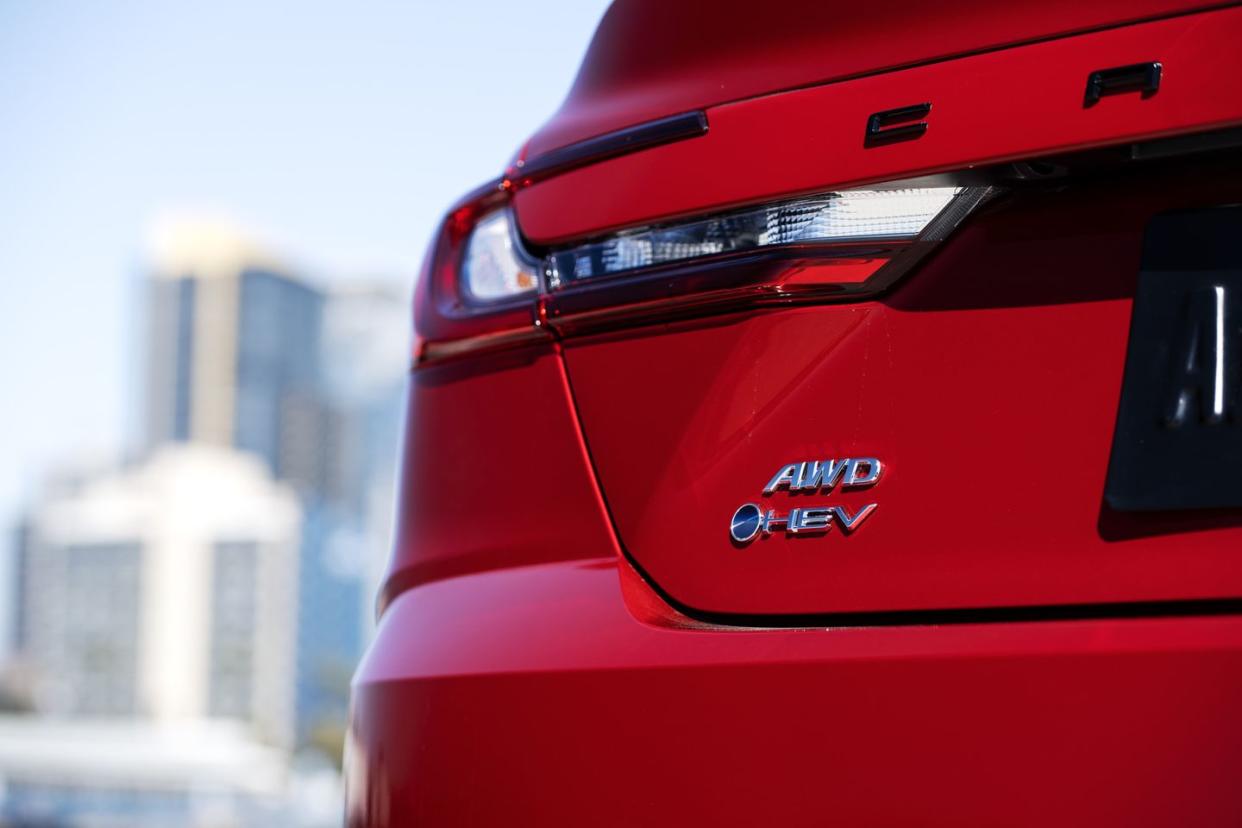
While the front-drive Camry will push its nose through corners, the all-wheel drive model’s tail can be felt pushing forward. The result is a very satisfying, nearly neutral cornering. And this was in the LE model with 16-inch wheels and all-season rubber. On bigger, better tires this could be flat wonderful. Particularly if Toyota adds a turbocharged internal combustion engine to the equation. The Camry TRD can’t get here quick enough.
Prices for the new Camry will start at $29,495 for the front-drive LE. An XSE with all-wheel drive will start at $37,220. The XV80 should be in showrooms by the summertime.
You Might Also Like
